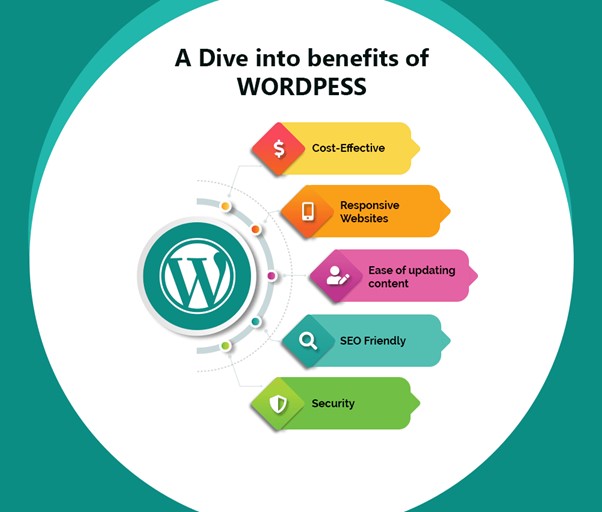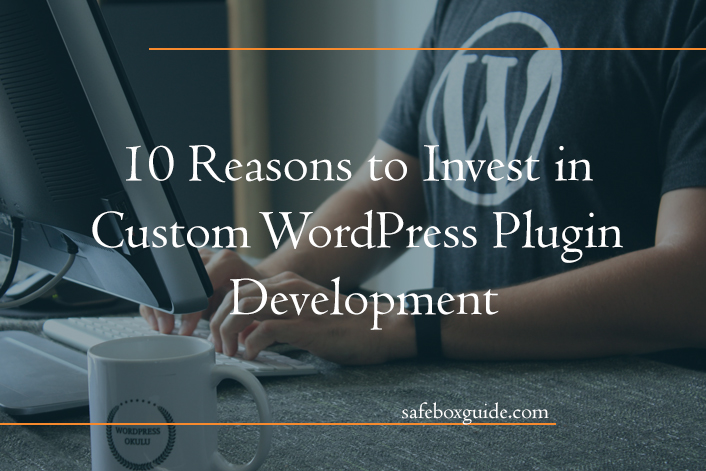WordPress is a popular content management system used by millions of websites worldwide. Its versatility and ease of use make it a popular choice among bloggers, businesses, and individuals looking to create a website. One of the biggest advantages of WordPress is the availability of plugins, which allow users to extend its functionality and customize their website.
You can also hire experienced WordPress plugin developers to ensure that your plugin is designed and developed to meet your specific needs and deliver the results you require.
In this article, we’ll explore what you’ll need to make a WordPress plugin, list of different plugins, and the reasons to invest in custom WordPress plugin development.
Contents
What is Custom WordPress Plugin Development?

Custom WordPress plugin development is the process of creating a plugin that is tailored to the specific needs and requirements of a website or business. A WordPress plugin is a piece of software that adds new functionality to a WordPress website. A custom WordPress plugin is designed and developed from scratch to meet the unique needs of a website or business.
Additionally, custom WordPress plugin development is a valuable tool for businesses and website owners looking to add new functionality and features to their WordPress websites.
What You’ll Need to Make a WordPress Plugin?
Before we dive into the reasons to invest in custom WordPress plugin development, let’s first discuss what you’ll need to make a WordPress plugin. Here are the basic requirements:
- A development environment – You’ll need a local or remote server where you can install WordPress and develop your plugin.
- Basic knowledge of PHP – WordPress is built using PHP, so having some knowledge of PHP is essential.
- Knowledge of WordPress hooks and filters – Hooks and filters allow you to modify the functionality of WordPress and are used extensively in plugin development.
- A text editor – You can use any text editor to write your plugin code. However, some editors like Visual Studio Code, Sublime Text, and Atom have useful features for PHP development.
- Access to the WordPress plugin repository – If you plan on distributing your plugin to the public, you’ll need to have a WordPress.org account and submit your plugin to the repository.
List of WordPress Plugin
- WPForms – A powerful and user-friendly contact form plugin for WordPress.
- Jetpack – A popular plugin that includes a variety of features such as site statistics, security, backups, and more.
- Yoast SEO – A comprehensive SEO plugin that helps optimize your content for search engines.
- WooCommerce – A leading eCommerce plugin that lets you create online stores and sell products.

- Gravity Forms – Another top contact form plugin that offers advanced form building features.
- Contact Form 7 – A simple yet flexible contact form plugin that is highly customizable.
- Akismet – A spam protection plugin that helps block unwanted comments and trackbacks.
- WP Rocket – A caching plugin that improves website speed and performance.
- All in One SEO Pack – An alternative to Yoast SEO that provides similar features.
- Easy Digital Downloads – An eCommerce plugin that specializes in selling digital products such as software, eBooks, and music.
Reasons to invest in Custom WordPress Plugin Development
Here are 10 reasons why you should invest in hiring WordPress plugin developers:
Tailored to your needs: Custom plugins are designed specifically for your website’s unique requirements, ensuring they align with your business goals.
Example: A photography website may need a plugin to create a gallery of their work that is easy to update and navigate for their clients.
Increases efficiency: Custom plugins can automate repetitive tasks, saving you and your team valuable time and reducing errors.
Example: An e-commerce site can have a plugin developed that automatically generates product descriptions, prices, and images from an API.

Improves security: Custom plugins can be built with your website’s security in mind, reducing the risk of potential cyber threats.
Example: A financial website can have a custom plugin that implements two-factor authentication to ensure user data is protected.
Enhances user experience: Custom plugins can add new features or improve existing ones, making your website more user-friendly.
Example: A travel website can have a custom plugin that shows users the best flight deals based on their search history and preferences.
Better scalability: Custom plugins can be scaled up or down as your business grows, ensuring they continue to meet your changing needs.
Example: A news website can have a custom plugin developed that allows them to publish breaking news stories more efficiently, saving time during peak traffic times.
Competitive edge: Custom plugins can give you a competitive edge by offering unique features that set you apart from your competitors.
Example: An online fashion retailer can have a custom plugin developed that offers users a virtual dressing room, allowing them to try on clothes virtually before purchasing.
Lower costs: Custom plugins can save you money in the long run by reducing the need for manual work and third-party tools.
Example: A marketing website can have a custom plugin developed that automates their social media posts, reducing the need for a dedicated social media manager.
Easy to update: Custom plugins can be updated quickly and easily, ensuring your website stays up-to-date with the latest features and security patches.
Example: An education website can have a custom plugin developed that allows teachers to update their course content in real-time, ensuring students have the most up-to-date information.
Flexibility: Custom plugins can be customized to fit your specific business needs, ensuring they work seamlessly with your existing systems and tools.
Example: A healthcare website can have a custom plugin developed that integrates with their electronic health record system, allowing patients to schedule appointments online.
Long-term investment: Custom plugins can offer long-term benefits and ROI by improving website performance and user engagement.
Example: A real estate website can have a custom plugin developed that allows users to view 3D property tours, increasing engagement and driving more leads.
Summing Up
In conclusion, custom WordPress plugin development is a valuable investment for any business looking to improve their website’s functionality, security, and user experience. By hiring WordPress plugin developers, you can ensure your website stands out from the competition and meets your unique business needs.

